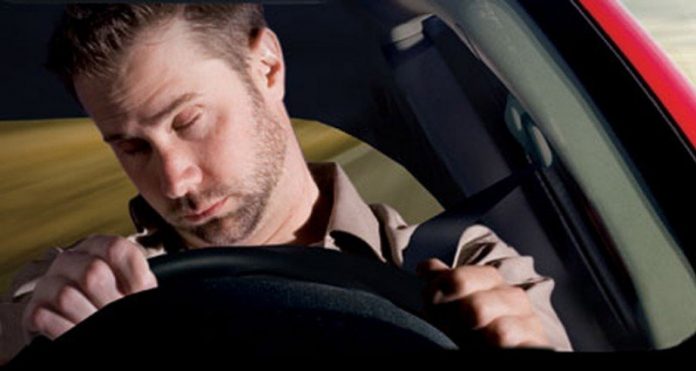1 in 5 accidents on major roads are caused by tiredness
- Men and young drivers are the most likely to be at risk from drowsy driving
- AA Charitable Trust and FIA Foundation launch new drowsy driving
One in eight (13%) UK drivers admit falling asleep at the wheel, according to new research[1] by the AA Charitable Trust.
And nearly two fifths (37%) say they have been so tired they have been scared they would fall asleep when driving.
The latest road casualty statistics show drowsy drivers contributed to 53 fatal and 351 serious crashes in 2017[2]. It is widely accepted the true figure for fatigue related crashes is much higher due to under-reporting. In fact, it is estimated that up to 25 per cent of fatal accidents are caused by drivers who have fallen asleep at the wheel[3].
Men are three times as likely as women to say they have fallen asleep at the wheel (17% compared to 5%).
And young drivers, aged 18-to-24, are the most likely to say being very tired does not affect their driving ability (13% compared to 2% of all drivers). They are also the most likely age group to say they normally carry on regardless if they feel tired while driving (18% compared to 3% of all drivers).
Drivers who have been affected by tiredness say:
- Over half (57%) stopped for a break as soon as they realised they might be too tired to drive (just 34% of 18-24-year olds said this)
- A third (36%) said they felt fine when they started their journey and their drowsiness took them by surprise (higher among young drivers at 45% for 18-24-year-olds)
- One in ten (11%) knew they were tired when they began their journey (29% of 18-24-year olds; 15% of women and 9% of men)
- More than a fifth (23%) said they had been driving for more than two hours without a break when they were affected by tiredness (25% of men and 19% of women)
The top five reasons for driving tired are[4]:
- A long/hard day at work (39%)
- Monotony of the journey (33%)
- Late night driving (27%)
- Trying to cover too much distance in one day (27%)
- Lack of sleep the night before (26%)
Edmund King, AA Charitable Trust director, said:
“One quarter of fatal crashes are sleep related so drowsiness is one of the most under-estimated risks on the roads. Tiredness is a fact of life at some point for most of us and it is crucial we know how to manage it in relation to driving.”
“Winding down the window, singing and turning up the radio are not remedies to tiredness – rather a symptom in themselves.”
“If you feel tiredness creeping up on you when driving then stop and take a break.”
Dr Katharina Lederle, sleep expert at Somnia and author of Sleep Sense, said: “The simple truth is the only long-term cure for sleepiness is sleep and drivers are not able to fight it off by opening the window or turning up the radio.
The top 10 stretches of motorway that would most benefit from additional services[5] are:
- M25 Maple Cross Hertfordshire, NW London
- M6 Rugby Warwickshire
- M1 Leeds Skelton Lake, Yorkshire
- A1(M) Ripon North Yorkshire
- M3 Basingstoke North Hampshire
- M42 Solihull West Midlands
- M90 Forth Road Bridge East Central Scotland
- M11 Duxford Area Cambridgeshire
- M27 Fareham South East Hampshire
- M20 Wrotham Kent
For more information about the campaign visit:
http://www.theaa.com/about-us/aa-charitable-trust
https://www.theaa.com/driving-advice/safety/tired-drivers







